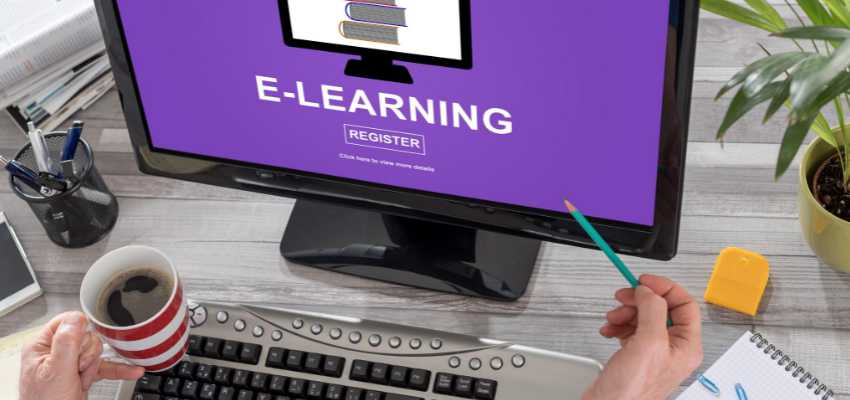Show:
Are You an eLearning Expert? Check Out These 15 Leadership Rules for Leading Incredible L&D Programs!
As with all managers, eLearning experts are accountable for developing their industry. Since eLearning represents a more recent training technique than more established ones, its leadership must help contemporary students take full advantage of its upsides.
A person is considered an efficient leader when they are capable of placing the demands of their followers, i.e., the learners, before themselves. An eLearning practitioner should attempt to do online training as user-centric as feasible while trying to ensure that it achieves its educational objectives, which are to instill skill sets, virtues, and expertise in trainees.

This is done by consistently securing the trainee at the core of an eLearning design stage. Furthermore, a manager should constantly pursue creativity. Following these 15 fundamental principles shall help you to become the perfect eLearning leader by giving you a start.
1. Recognition of Diverse Learners
A good leader is aware of the diversity of the world and the uniqueness of each individual. The same holds for trainees; this is a valuable organizational principle that every business eLearning practitioner needs to be aware of.
To make each student feel as though the adaptable training alternatives were created especially for them, instructors and supervisors should build eLearning to be personalized as feasible.
Apart from providing learners with various learning paths, let them select individualized course designs or organizational skills training tailored to their requirements, interests, and abilities alongside their growth and development.
2. Constant Updates to eLearning Portfolios
Some inexperienced educators commit the oversight of posting their ePortfolio, only to leave it there unattended for weeks and months. They continue to direct prospective customers or companies to the website. But they are doing an enormous disservice by consistently failing to refresh the page.
Each eLearning platform gives fresh insights and experiences you should use in your growing portfolio. Consider it a never-ending project and substitute new references for old or obsolete specimens and job biographies.
3. Recognition of Mistakes
Always learning from your failures is another essential leadership principle. Suppose an eLearning expert’s PowerPoint presentation or digital course performs poorly or yields unexpected consequences. In that case, they must first evaluate the errors they committed by soliciting student feedback before deciding what remedial action needs to be completed.
4. Knowledge of Theories and ID Models
Set a goal to educate yourself as thoroughly as you can on the models and theories that make up instructional designs. When you don’t have much time, concentrate on a single new principle each week and study its specifics.
Learn the advantages and disadvantages and the fundamentals and most typical use scenarios. Investigate the opinions of both skeptics and proponents to assess both points of view.

5. Equal Treatment for All Team Members
A competent leader never repeatedly emphasizes how superior they are to their subordinates. Each member of an eLearning group has a unique set of skills, duties, and reporting lines, particularly when developing a curriculum.
Regardless of the structure, the basic rule of leading is to respect each individual as an equivalent. A leader must also render crucial judgments in a strict yet impartial manner.
6. Regular Practice of Marketing Tasks
You’ll rapidly learn why eLearning newbies must act as their personal best advocates. This line of work necessitates much marketing, particularly if you launch a business or freelance rather than search for openings.
Avoid exhausting yourself by attempting to complete each task on your checklist of self-promotion. Instead, work on one job per day to make progress toward your promotional strategies.
Post anything on social networks or your website, for instance. To learn fresh tactics to expand your audience, go to a professional conference or enroll in a branding school.
7. Understanding of the Psychology of Learning
A successful leader must be an industry expert. This golden organizational guideline requires eLearning practitioners to understand how individuals learn on a cognitive and instructive design stage.
At its foundation, dynamic eLearning is a paradigm for education combining technological and social interactions. The effectiveness of collaborative learning, an learning management system, and eLearning courses depends heavily on the student’s cognitive processes and behavioral patterns.
Professionals in the eLearning industry must be knowledgeable in and experts in cognitive behavior.
8. Knowledge About Market Trends
An intelligent leader must always be knowledgeable about the most recent advancements in their industry. The field of eLearning is exciting, and novel innovations and tools are continuously emerging.
Examples include cloud-based training platforms and active learning applications. The golden management guideline is, therefore:
Maintaining up-to-date knowledge of these advancements guarantees that you constantly know how to utilize the finest orientation and learning management strategies, authoring tools, organizational learning, and regulatory skills training to deliver only the highest-quality fast e-learning to your students.
9. Increased Focus on Strengths
A competent leader is aware of their assets and uses them to the group’s advantage. Each eLearning expert, as was previously established, has a specialty.
While some experts could excel at curriculum strategies or content creation, others might excel at design aesthetics or eLearning implementation. While having a good overview of how eLearning functions are beneficial, finding your specialization and staying with it will help you succeed in eLearning in general.
10. Continual Testing
When someone does a radical praxis, they become a leader. When experts in digital training have a good grasp of the fundamentals, they must try exploring the information they already know to uncover novel ideas.
It is highly coveted for an eLearning practitioner to be creative and curious, and experimentation frequently results in inventions. Trying and making a mistake is always beneficial, but it’s essential to ensure that it doesn’t stop there.

11. Continuous Learning
Good leader constantly seeks new information to improve their knowledge of themselves and the people surrounding them. What use is any eLearning expert if they don’t use the products they promote?
Since eLearning staffers are trained in the knowledge industry, they can never claim to know everything. To be recognized as a seasoned and effective leader, they should periodically broaden their expertise and investigate new topics.
12. Locating the Right eLearning Niche
Novice educators occasionally go the generic route. To concentrate on your abilities and follow your interests, it’s frequently best to determine your eLearning professional specialization.
For instance, you could like to collaborate with businesses to create virtual learning programs to help them achieve their objectives. Rather than opting for a position with a timetable and less variation, this allows you the chance to cooperate with many customers’ L&D teams throughout the calendar year.
13. Taking Responsibility
People develop into leaders by taking on responsibilities for tasks they are unable to do. As an educational expert, you will occasionally be required to complete challenging jobs that your peers avoid, duties that could be foreign to you, and activities that are not your obligation.
Consider a situation where a crucial member of the team is absent on the date you’re due to give a session to a customer. Taking charge in these circumstances will help you develop into a strong leader and produce amazing outcomes.
14. Setting Goals
Before starting your adventure with eLearning, you must know where you are going. It is necessary to clearly understand your goals and your strategy for accomplishment on your own grounds.
Better yet, clarify what perfection looks like for you and how you intend to start a fruitful eLearning profession. Set objectives for yourself that include attainable checkpoints that will allow you to monitor your success and keep your career energy going.
Be clear about what you hope to accomplish in the initial months before extending your goal to five years.
15. Understanding Limits
An effective leader also understands when to give up. You may occasionally feel compelled to continue trying to influence the circumstances over which you are aware that you have no power.
For instance, updating an outdated eLearning system that simply cannot be updated. Consider using a more recent and cutting-edge collaborative learning solution, like a SCORM-compatible microlearning LMS, if it consumes additional resources and time.
Users of PlayAblo have access to powerful publishing software that allows the smooth incorporation of original educational materials into pre-made, adaptive layouts.
Conclusion
The above pieces of advice go a long way toward assisting you in comprehending an eLearning leader’s perspective. However, be aware that true leaders forge their own paths and change the world through skillfully implemented ideas. Continue to advance while maintaining your enthusiasm for online learning.
About the author:
Dheeraj Sharma is the CEO of PlayAblo™ LMS, a Gamified Micro-learning LMS. Lightweight and a lot of fun to use, PlayAblo helps enterprises transition seamlessly from ILT to eLearning model while ensuring solid ROI. Leading organisations use PlayAblo to deliver and monitor employee, customer and partner training right from their smartphones.

 Return to Previous Page
Return to Previous Page








